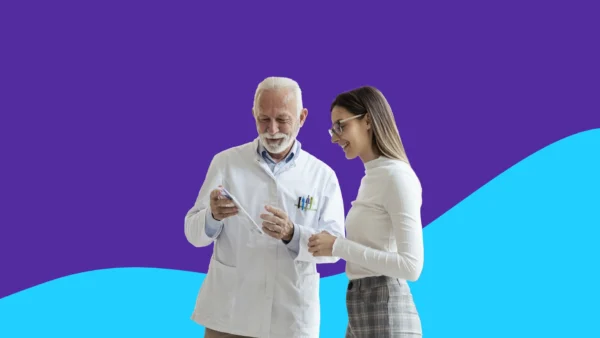Obesity has become a growing public health concern in the United States. Current statistics reveal an alarming rise in weight-related problems, with nearly 40% of adults being obese. Obesity can significantly affect a person’s health and increase the risk of other health conditions, including diabetes, cardiovascular disease, renal disease, and even cancer.
With the rise in obesity rates, it has become clear that a multi-disciplinary approach is needed. Pharmacists are often accessible healthcare professionals who can provide support for patients with obesity. Their direct contact with the community puts them in a valuable position to advise and help treat those struggling to lose weight.
Let’s take a look at the current state of obesity, potential risk factors, treatments, and how pharmacists can help counsel patients as part of the healthcare team.
The current state of obesity
According to data from the National Health and Nutrition Examination Survey in 2018, the prevalence of obesity is expected to reach almost 50% of all U.S. adults by 2030. Obesity rates are higher among older adults, women, and non-Hispanic Blacks. In addition, obesity rates were higher in people who did not graduate college, were sedentary a majority of the time, and had poor economic status. Although genetics and environmental factors play a major role in obesity, lifestyle, and socioeconomic factors may also be involved.
What are the consequences of obesity?
The implications of obesity go far beyond aesthetics. Obesity is often diagnosed along with other comorbidities that can affect all aspects of a person’s health. Obesity is linked to the following medical conditions:
- Hypertension
- Type 2 diabetes
- Coronary artery disease
- Heart failure
- Atrial fibrillation
- Stroke
- Obstructive sleep apnea
- Dyslipidemia
- Metabolic syndrome
- Vitamin D deficiency
- Osteoarthritis
- Non-alcoholic fatty liver disease
- Gallstones
In addition, obesity may have effects on a person’s mental health. People who are obese may be more likely to experience depression than those who are not obese.
How pharmacists are key in addressing obesity
As a pharmacist, you are not merely a dispenser of medication. Your knowledge and skills extend far beyond this role, allowing you to help support patients in various situations. For instance, you might have a conversation with a patient about the potential health risks of excess weight. You can steer patients toward healthier lifestyle choices, such as a healthy diet and exercise plan, or encourage patients to seek regular medical checkups.
Additionally, with the use of medications becoming more popular, pharmacists can help counsel patients on how to properly use weight-loss drugs. Medications used to treat obesity may include various drug classes, such as lipase inhibitors, serotonergic drugs, anorexiants, and GLP-1 agonists.
These medications work in different ways to help manage weight and typically need to be used along with healthy lifestyle choices for maximum effectiveness. Examples of medications that a pharmacist might come across for weight loss include:
- Xenical, Alli (orlistat)
- Belviq (lorcaserin)
- Qsymia (phentermine/topiramate)
- Contrave (naltrexone/bupropion)
- Saxenda (liraglutide)
- Wegovy (semaglutide)
You can advise patients about potential side effects and alert them to any possible interactions with other medications they may be taking. Studies have found that weight management clinics led by pharmacists may lead to better outcomes than weight management services conducted by a primary care provider alone.
3 strategies for counseling patients with obesity
To support obesity management and overall health in your community, you can employ the following three strategies.
Understand the stages of change
Behavioral change is often a process, not an event. People typically move through stages of pre-contemplation, contemplation, preparation, action, and maintenance when making a change. It’s important to keep these stages in mind when talking with your patients. For example, you may be engaging with a patient in the contemplation stage, when they are aware of their need to lose weight but uncertain about how to move forward. You can tailor your advice depending on what stage of change the patient is at.
Use Motivational interviewing techniques
There are different motivational interviewing techniques, such as FRAMES and OARS, you can employ when helping patients with obesity.
The FRAMES technique would look like:
- Providing Feedback on health risks
- Emphasizing the patient’s Responsibility for change
- Giving clear Advice
- Offering a Menu of options for change
- Expressing Empathy
- Promoting Self-Efficacy
OARS, on the other hand, involves:
- Using Open-ended questions to stimulate dialogue
- Providing Affirmations to validate the patient’s experiences
- Using Reflective listening to convey empathy
- Offering Summaries to help reinforce the changes the patient thinks they should make
For a patient in the contemplation stage of change, a pharmacist could leverage motivational interviewing techniques and ask open-ended questions such as, “What is one thing you feel you could change about your diet?” This could help the patient move into the preparation stage and talk about specific dietary changes they could make.
Try the 5A’s model
The 5A’s model—Ask, Advise, Assess, Assist, and Arrange—may also be a useful framework for you to help support patients with obesity. With this structured model, you can make the conversation with patients more productive. Try asking about the patient’s eating and exercise habits and advise them on necessary changes. You can then assess their willingness to make these changes, assist them in creating a plan, and arrange follow-up visits to monitor their progress.
Other things to keep in mind
Many over-the-counter diet aids are marketed to promote rapid weight loss—and you may be asked by patients about their validity. It’s important to communicate that these supplements may have potential health risks, especially for people with certain medical conditions or those taking other medications. For example, certain ingredients found in weight-loss supplements, such as yohimbe and bitter orange, may cause increased blood pressure and heart rate, which can cause complications in patients with hypertension or arrhythmias.
In addition to counseling, you could also hold screenings for obesity and weight-related conditions, where you can measure body mass index (BMI) and waist circumference or discuss a patient’s family history of obesity to identify potential health risks.
With your knowledge of disease states and pharmacological treatments, you are uniquely qualified to positively impact the health of people who are obese or overweight. However, if patients are at risk of weight-related health problems, you should refer patients to their healthcare provider and other healthcare professionals for additional treatment.











